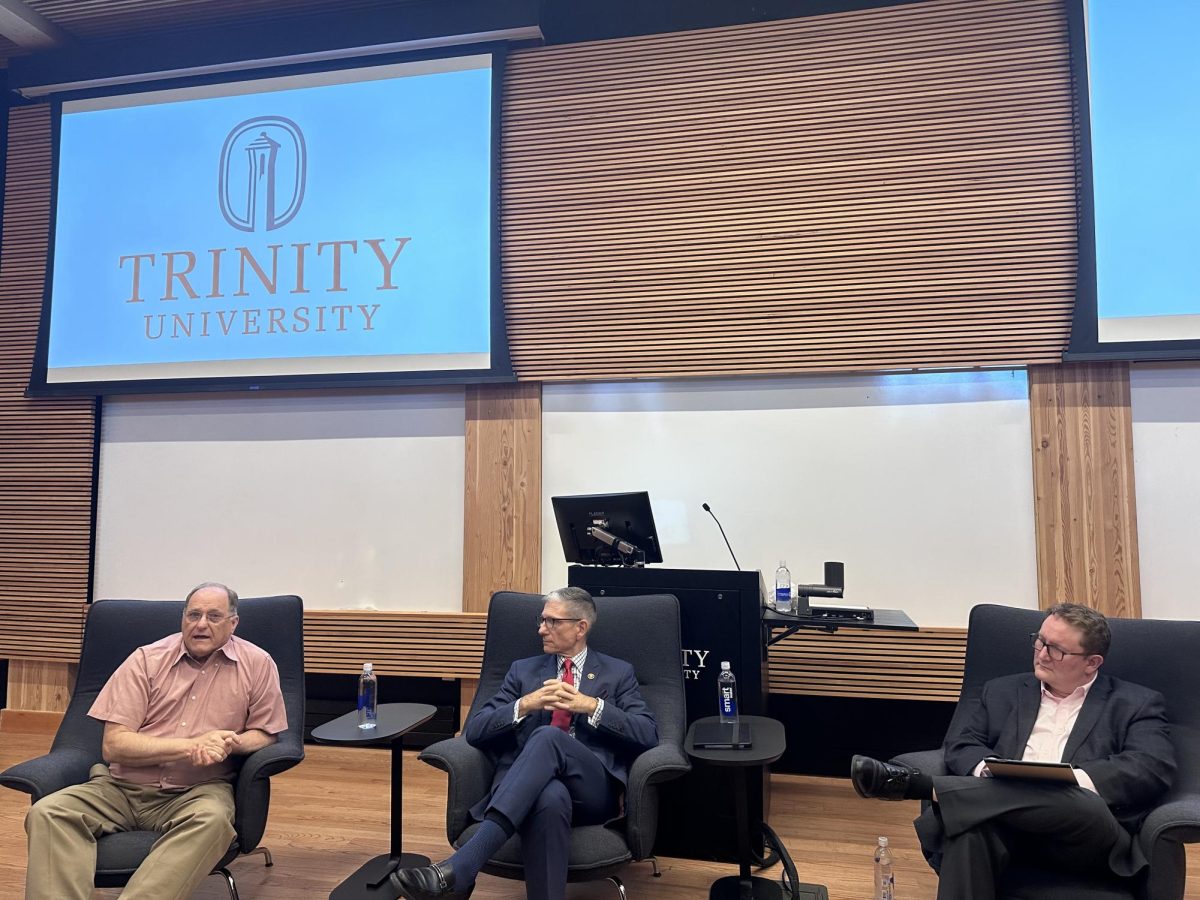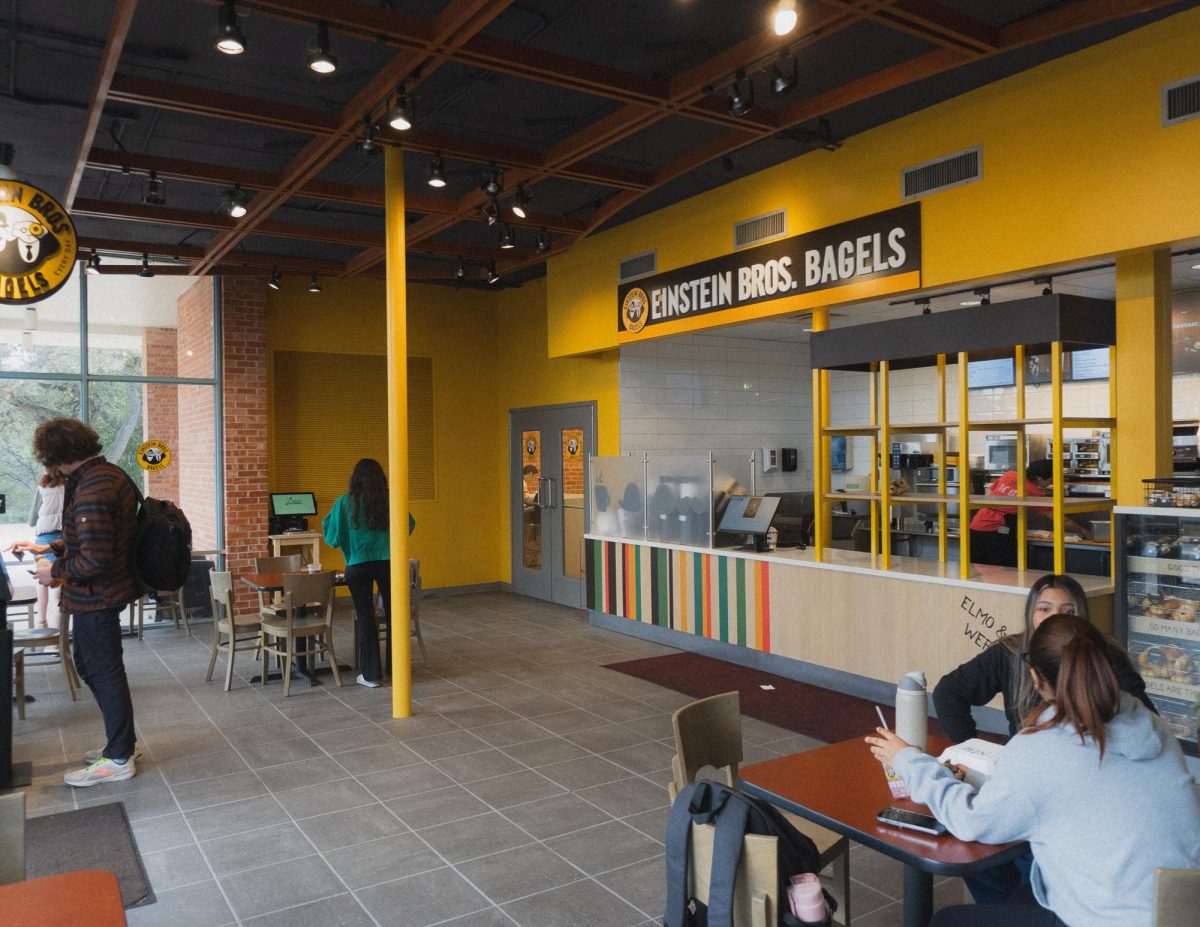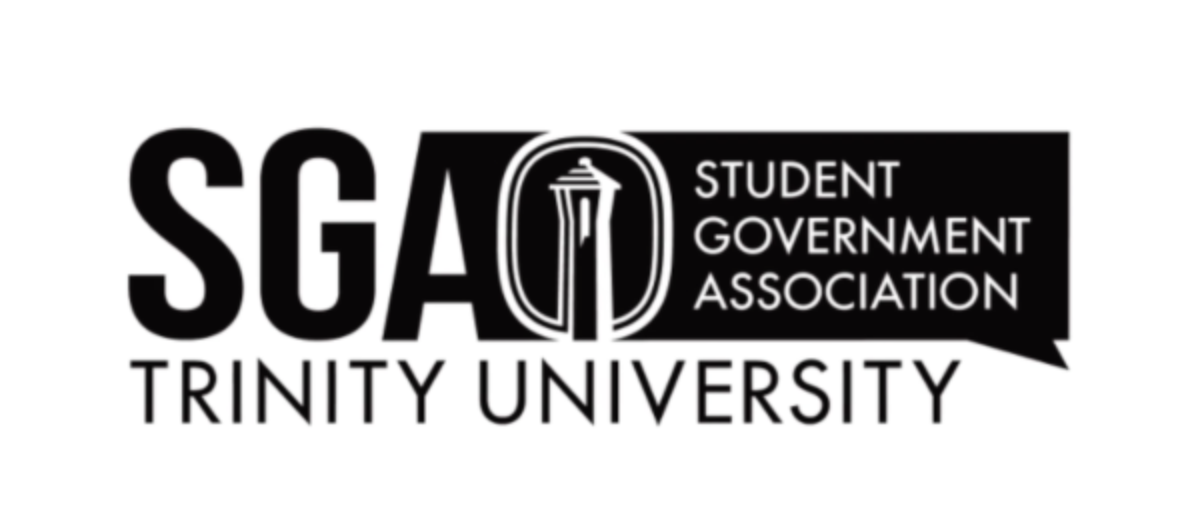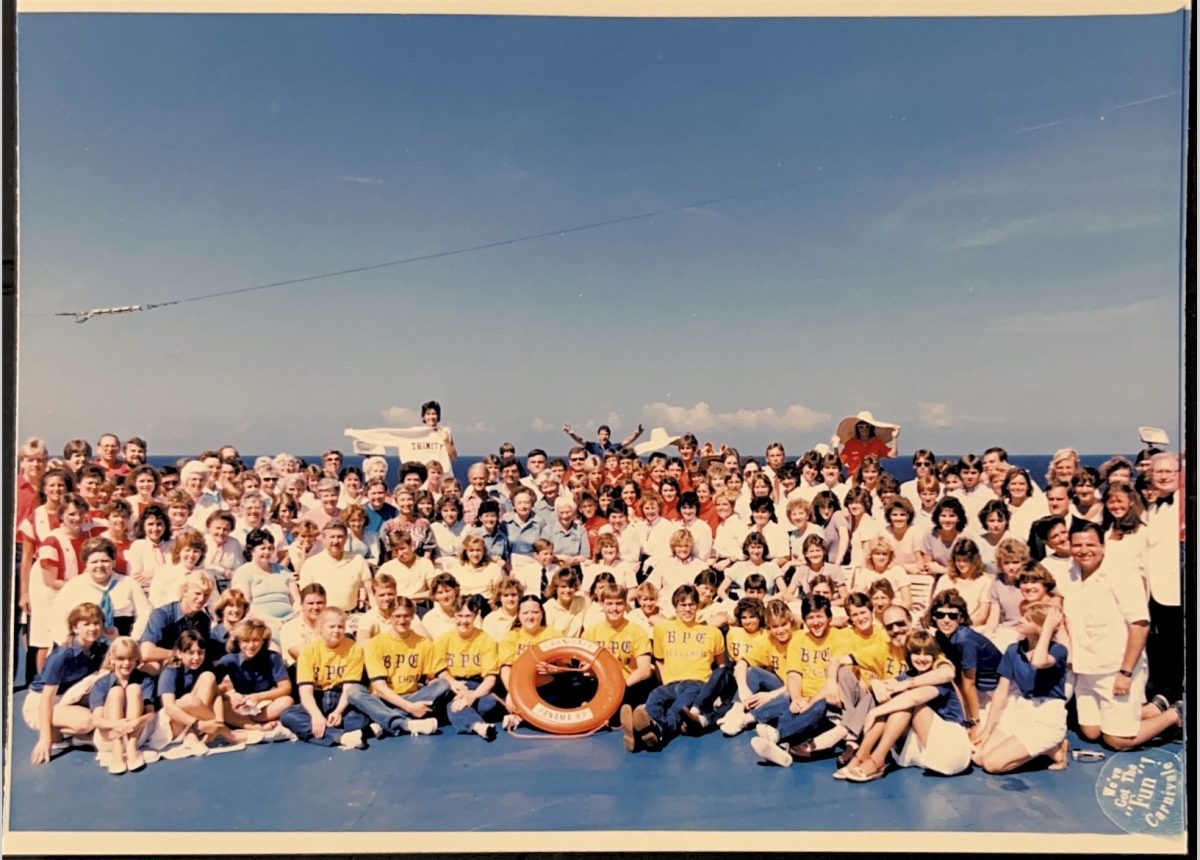The following covers the meeting on Feb. 19.
RETENTION AND GRADUATION RATE
Vice president for Enrollment Management Eric Maloof, associate vice president for Academic Affairs Michael Soto and dean of students David Tuttle gave a presentation on retention and student success. All three are members of a committee geared at increasing both rates.
Maloof, the executive sponsor for the project, explained that this is the first time the university has taken a full approach to retention and graduation rate numbers. The committee worked with an outside consultant and a committee turned the information and suggestions into a report, which they presented to university president Danny Anderson and presented again at this meeting.
The committee is focusing on student success because it is one area where Trinity falls behind when compared to peer and aspirant institutions, according to Maloof.
Trinity’s retention rate, the number of first-time full-time students that return for a second year, is 92 percent, compared to 93 percent from peer and aspirant schools. More pressing, Maloof noted, is the graduation rate. Currently, the four-year graduation rate is 69 percent, compared to 82 percent from peer institutions and 88 percent from aspirant institutions. Trinity’s six-year graduation rate is 76 percent.
Tuttle went through the three levels Trinity is focusing on: micro, macro and institutional foundations.
Soto then explained a few of the 16 recommendations the committee is making to the Faculty Senate later this spring. These include some procedural recommendations that Soto said would be quick fixes, as well as longer term recommendations that rely on university committee and student approval.
FUNDING REQUESTS
Club basketball requested $2,018 for the National Intramural and Recreational Sports Association regional tournament in Arlington. The request covers gas for three cars to make the trip there and back and three hotels rooms and two meals a day for nine people. The senate voted to approve gas for two cars instead of three and approved the amount of $1,702.
Tigers For Life requested $4,360 to bring Alveda King, Martin Luther King Jr.’s niece, to campus on April 5. The event has been approved by the Event Review Committee, and the request covers her honorarium and the cost of TUPD representatives. The senate approved the full amount.
The Trinity University Forensics Society and debate team requested $4,161.87 to send six students (three teams) to the American Debate Association national championships. The request covers hotel costs and flights, and the total cost of the tournament was partially funded by the Department of Human Communication. Legislative relations chair sophomore Nasim Salehitezangi explained why the debate team’s success is beneficial to the Trinity community. Salehitezangi is a member of the debate team.
After much discussion about whether to send the same six students to another national tournament after funding $8,977.08 last November. SGA approved the decision to subsidize $2,778.58 of the requested amount
The International Club requested $2,549.40 to host their International Banquet, which would cover the cost of food, raffle prizes, decorations and more. The senate approved the full amount.
ELECTION TIMELINE CHANGE
Last week, SGA approved an amendment to their constitution, but because they did not wait the required one week to vote after presenting the amendment, they voted again today. The senate approved the vote. For more information, read our coverage of the recent amendments to the SGA constitution.
ACADEMIC CALENDAR
At the end of the meeting, Tuttle, who is an adviser to SGA, asked the senate if they would vote on a change to the academic calendar so he could bring the vote to a committee dedicated to reviewing the university academic calendar. The senate voted to approve the change in fall break to start Oct. 10, instead of Oct. 23.








